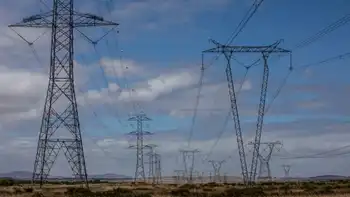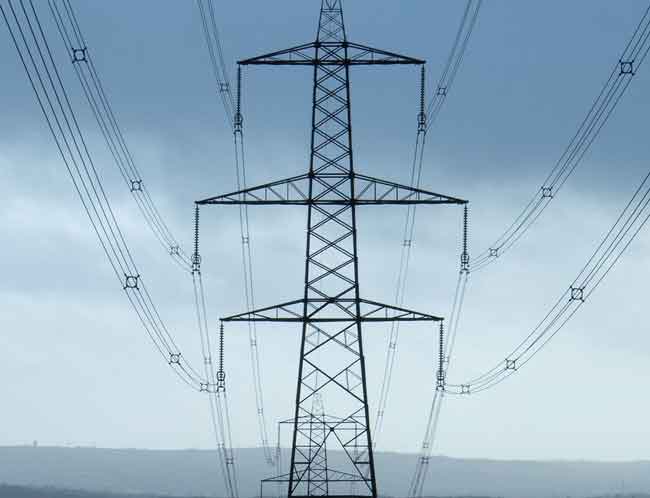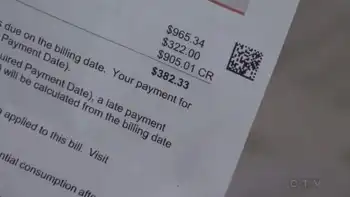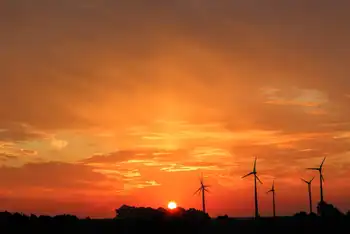TVA eyes windfall of green-energy credits
By Knoxville News Sentinel
NFPA 70e Training - Arc Flash
Our customized live online or in‑person group training can be delivered to your staff at your location.

- Live Online
- 6 hours Instructor-led
- Group Training Available
Attached to each megawatt hour is a renewable energy certificate, which has a value determined at state and international auctions, in large part, because it allows buyers to offset their carbon emissions and sellers to reap additional revenues in addition to the power they produce.
RECs aren't new, but they haven't made much local relevance until recently.
Tennessee doesn't have a renewable portfolio standard, which requires utilities to utilize a certain percentage of green power, or much renewable electricity production. And the lack of movement on federal cap-and-trade legislation has kept the instruments out of the limelight.
But TVA's recent decision to buy more renewable power, coupled with investors seeking ways to profit from green energy production, has pushed RECs into the local conversation — and in the case of at least one area solar developer, they've become part of its business plan.
TVA says its still determining what to do with the growing number of certificates it will acquire in the coming months.
TVA currently owns about 200,000 certificates, but will acquire several million between now and 2013, with the bulk coming in 2012 when the wind power it's contracted for comes online, says Steve Lomax, TVA senior manager for clean and renewable energy.
"We were preparing for what we anticipated to be a federal policy mandate that has not yet materialized," Lomax says. Now the agency must decide, "What do we do with the renewable credits that we have?"
TVA's current certificates were generated by its wind turbines, perched atop Buffalo Mountain near Oak Ridge, as well as its Generation Partners program, which pays customers a premium for the renewable power they generate. Per contract, TVA will also own the RECs associated with its new Standard Offer program, created for larger green power installations.
TVA has used the certificates as part of its Green Power Switch program, in which customers pay a premium for green energy, Lomax says, and to fulfill a federal order, which requires 5 percent of the electricity used by federal agencies to be generated by renewable sources.
TVA this fall announced deals to buy more than 1,600 megawatts of wind power and the associated RECs from a variety of providers, primarily in the Midwest, Lomax says.
The markets for RECs are created by renewable portfolio standards — now adopted in 30 states and the District of Columbia — that require power companies to provide a certain percentage of power from renewable sources. Voluntary markets, such as Tennessee, are those in which customers purchase green power simply because they want to.
Local solar developers have expressed frustration at TVA's stance, particularly in the recent launch of a new program set up for larger renewable generation systems that don't qualify for Generation Partners. The program's pricing structure is inadequate for solar investors, and they argue TVA should have taken the value of solar RECs — which trade at a higher price because several states have solar-power requirements for producers' portfolio — into account when the agency buys solar power.
But Lomax says the market for RECs is too uncertain right now to factor into power purchases.
"Theoretically it could be of consideration for the pricing if they were of value and if the market needed them," he says. "It really comes down to... are you choosing preferential renewable energy resources. Are you treating them all fairly?"
One local company has developed a financing program for solar systems built around the value of RECs versus the value of TVA's incentive programs.
TerraShares, a Morristown environmental services company, has been working to help organizations offset the initial capital costs by using third-party investors to finance and operate solar installations.
The company first explored the potential of RECs when TVA temporarily suspended its Generation Partners program earlier this year, says TerrShares founder John Atkins.
"Everyone was running around, understandably, like Chicken Little wondering what they were going to do," he says. "What we found is there are places we can sell those RECs. In fact, the revenue from those sources is better than Generation Partners."
TerraShares' customers would not feed TVA's electric grid, but would use the electricity to power their own operations.
"The history is that prices have been very stable in these auctions," Atkins says.











